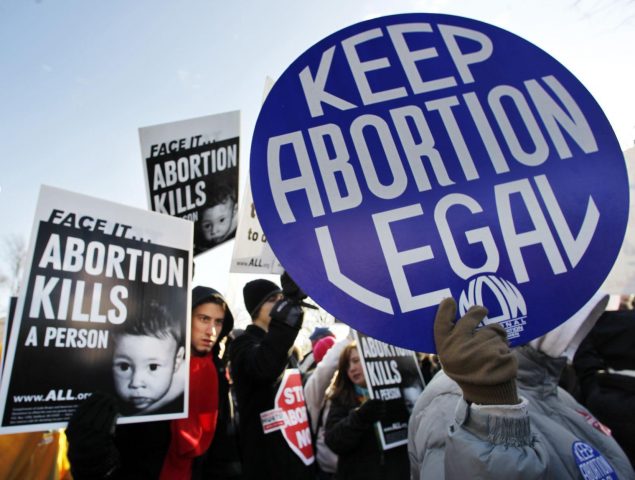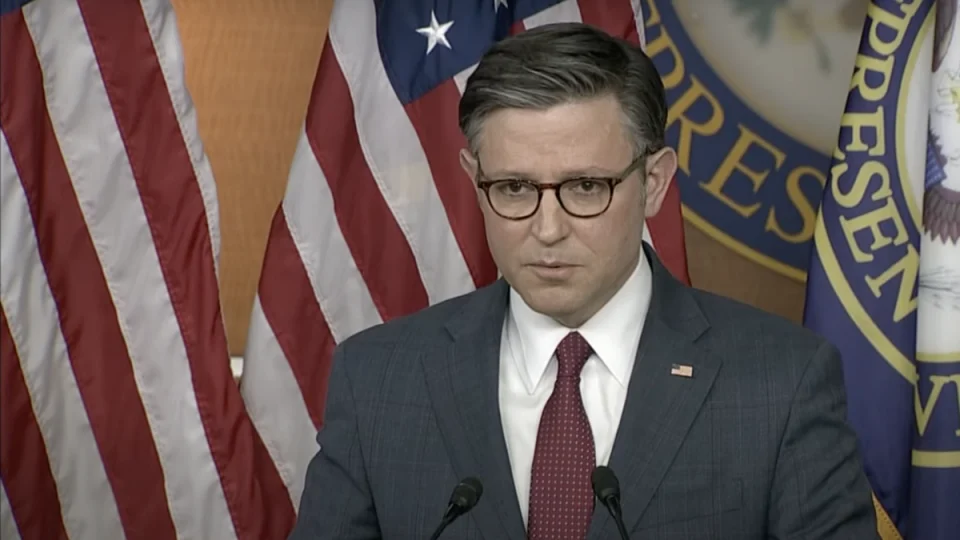The Real Climate-Change Deniers: Exposing a Mainstream Myth, by Vijay Jayaraj
January 23, 2019Msgr. Charles Pope: The Word of God: Handle with Care
January 23, 2019
By Mark Ballard, The Advocate, Jan. 22, 2019
 On the 46th anniversary of the Roe v. Wade decision that legalized abortion, Attorney General Jeff Landry announced Tuesday that a new law would go into effect next week that could further limit access to pregnancy termination procedures in Louisiana.
On the 46th anniversary of the Roe v. Wade decision that legalized abortion, Attorney General Jeff Landry announced Tuesday that a new law would go into effect next week that could further limit access to pregnancy termination procedures in Louisiana.
Starting Monday, Jan. 28, physicians who perform abortions must have permission to use nearby hospitals, called “admitting privileges,” Landry said in a news release. That’s barring any appeal to the U.S. Supreme Court of a decision last week by the 5th U.S. Circuit Court Appeals.
The Center for Reproductive Rights, which represents five physicians and abortion clinics that challenged the constitutionality of Act 620, hasn’t appealed to the high court. But Nancy Northup, president and CEO of the New York-based advocacy group noted that only three abortion clinics are left – down from seven in 2006 – and upholding the “admitting privileges” law would result in more closures.
“We will take every legal action available to block this unconstitutional law, including taking this case to the Supreme Court if necessary,” Northrup said in a statement.
Act 620 requires any physician providing abortion services in Louisiana to have admitting privileges at a hospital within 30 miles of the procedure. The Louisiana Department of Health is responsible for licensing facilities and ensuring compliance. Generally, physicians with admitting privileges must submit a letter from the hospital saying so.
“The Louisiana Department of Health is consulting with the Attorney General and examining the decision and the options we currently have at our disposal,” Stephen Russo, LDH Executive Counsel, said Tuesday. “After reviewing these options for enforcement of the law, we will move forward with protecting the health and safety of women in Louisiana.”
In 1973, a 7-2 U.S. Supreme Court in Roe v Wade upheld the decision of a Dallas-based federal court panel that found Texas’ law criminalizing abortions was unconstitutional. The high court majority ruled that the right to privacy extended to a woman’s decision to terminate her early-term pregnancy. The decision effectively legalized abortion.
Unlike Louisiana’s action, the New York State Assembly on Tuesday passed legislation making abortion an affirmative right for women and is expected to be signed into law by New York Gov. Andrew Cuomo. The law would allow abortions to remain available if Roe v Wade is overturned.
Louisiana’s Unsafe Abortion Protection Act, Act 620 of 2014, is aimed at protecting women’s health, said its sponsor, state Rep. Katrina Jackson, D-Monroe.
Critics of Act 620, however, point out that few abortion procedures go awry. Less than half of one percent of the patients need hospitalization. What the law really does is make it more difficult for physicians to perform the procedure, say the five doctors who challenged the law in federal court.
Five Louisiana clinics performed 10,322 abortions in 2014. By 2017, 8,706 abortions were performed in four clinics.
The U.S. Supreme Court overturned a similar Texas law in June 2016 because so many Lone Star doctors couldn’t obtain admitting privileges that all but eight of 40 clinics closed. The difficulty obtaining privileges, long drives and long wait times at the remaining clinics created an undue burden, the Supreme Court ruled in finding the Texas law unconstitutional.
In September, two of three judges on a 5th Circuit found Act 620 didn’t cause an undue burden on Louisiana women largely because the physicians didn’t try too hard to get hospital admitting privileges.
The full court voted 9-6 Friday not reconsider the panel’s decision. The next step is to go to the Supreme Court.
Voting against a rehearing were 5th Circuit judges: Edith Jones, of Houston, appointed by President Ronald Reagan; Jerry Smith, of Houston, appointed by Reagan; Priscilla Owen, of Austin, appointed by President George W. Bush; Jennifer Walker Elrod, of Houston, appointed by Bush; Catharina Haynes, of Dallas, appointed by Bush; Don Willett, of Austin, appointed by President Donald Trump; James Chiun-Yue Ho, of Dallas, appointed by Trump; Kurt Engelhardt, of New Orleans, chosen by Trump; and Andrew Oldham, of Austin, appointed by Trump.
Voting for a rehearing by the full court were 5th Circuit judges: James Dennis, of New Orleans, appointed by President Bill Clinton; Stephen Higginson, of New Orleans, appointed by President Barack Obama; Chief Judge Carl Stewart, of Shreveport, appointed by Clinton; Leslie Southwick, of Jackson, Miss., appointed by Bush; James Graves, of Jackson, Miss., appointed by Obama; and Gregg Costa, of Houston, appointed by Obama.







